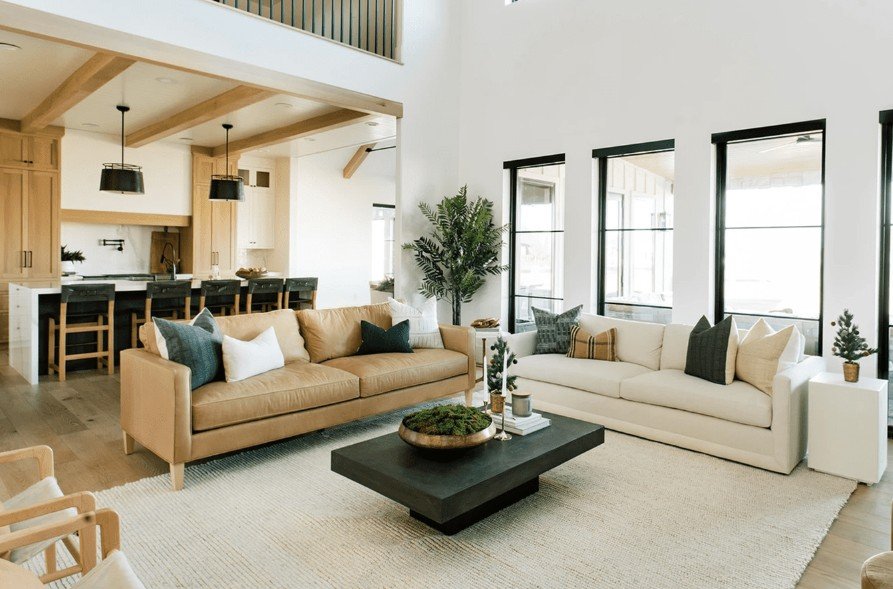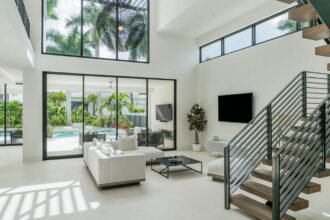
I remember the first time I tried to give my living room a “modern” look. I thought all I needed was sleek furniture and a minimalist color palette. Spoiler alert: It looked cold and lifeless—like a waiting room, not a cozy home. That’s when I realized modern interior design isn’t just about aesthetics; it’s about balance, warmth, and functionality.
Modern home design is all about simplicity, but that doesn’t mean boring. The key is clean lines, a neutral base, and pops of texture or color to make the space feel lived-in. Think of it like a good outfit: you start with timeless basics (a comfy sofa, a neutral rug) and layer in personality (a bold piece of artwork, an interesting lamp). I learned the hard way that too much white or gray without texture makes a space feel sterile. Adding wood, textiles, and subtle patterns keeps things interesting.
Minimalism with Purpose
One mistake people make is confusing modern with “empty.” A modern space should feel uncluttered, not bare. I once got rid of almost everything in my bedroom, thinking it would make the space feel open and airy. Instead, it felt unfinished, like I had just moved in. The trick? Storage solutions that hide clutter but keep essentials accessible. Wall-mounted shelves, furniture with hidden compartments, and sleek cabinets work wonders.
Natural Light is Everything
If there’s one game-changer in modern design, it’s lighting. Natural light makes everything look better, but I learned that artificial lighting is just as important. Layering light—using a mix of ceiling fixtures, floor lamps, and accent lights—adds depth and coziness. I once relied solely on recessed lighting, and my space felt flat. Now, I mix warm-toned lamps and pendant lights to create a welcoming glow.
The Power of Texture
One of my biggest “aha” moments was realizing how much texture matters. A sleek black leather couch is cool, but pair it with a chunky knit throw and a woven rug? Instant warmth. Mixing materials—wood, metal, glass, fabric—prevents a space from feeling one-dimensional. Even subtle changes, like matte finishes instead of high-gloss, can make a room feel more inviting.
Functionality First
No matter how stunning a room looks, if it’s not functional, it won’t work long-term. I once bought the trendiest glass coffee table, only to realize it was constantly smudged and impractical. Now, I prioritize comfort and usability. Rounded edges, soft-close drawers, and furniture that actually fits my lifestyle have made a world of difference.
Modern home interior design isn’t just about following trends—it’s about creating a space that feels like you. Keep it simple, but don’t forget the details that make it feel warm and lived-in. After all, a house should look good, but more importantly, it should feel like home.


